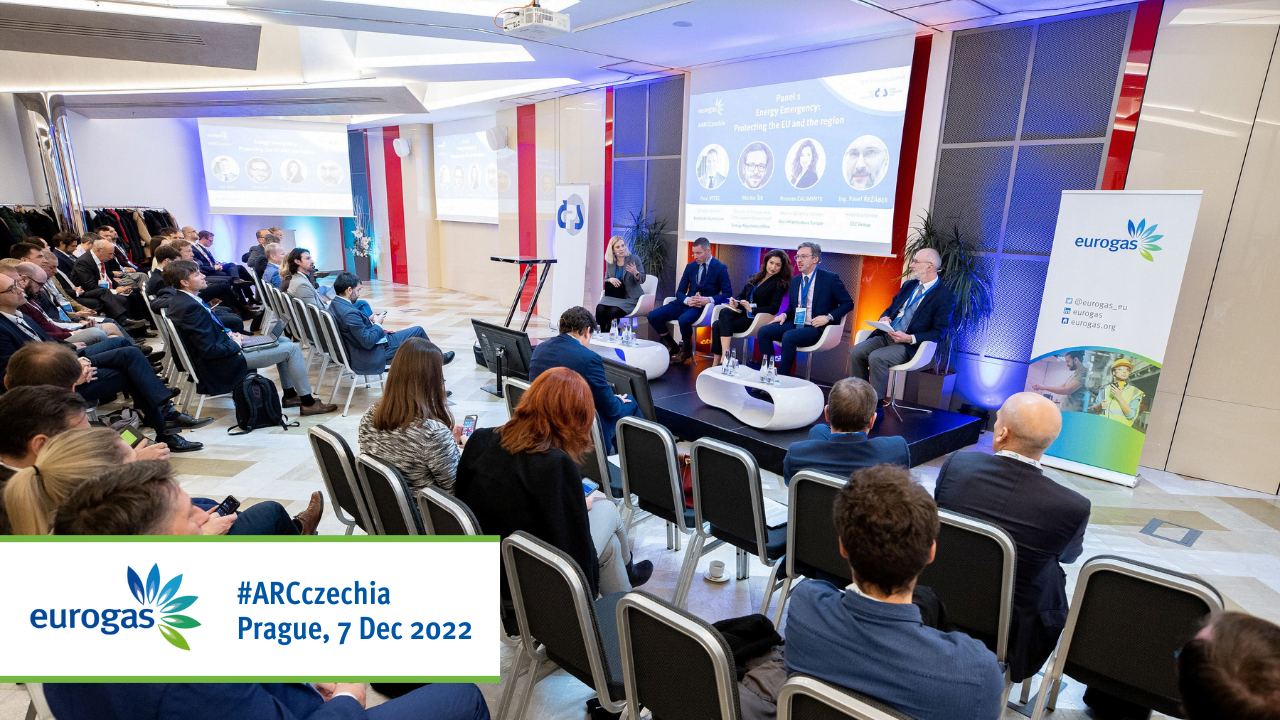Eurogas meets in Prague to assess role of gases in Czech Republic and beyond
On 7 December, gas and energy experts from across Europe joined Eurogas to examine the role of gases in the Czech Republic and beyond.
This annual regional conference welcomed nearly 200 attendees in Prague and online, and didn’t lose focus on the ultimate objective of decarbonising the gas sector through, for example, the deployment of biomethane and hydrogen.
But the European Commission’s objective of “preparing for the winter of next year” was a theme echoed by speakers and panellists alike, notwithstanding the determined effort by EU Member States and industries to ramp up the security of gas supply and fill gas storages ahead of this winter, in 2022.
Keynote speaker René Neděla, Czech Deputy Minister for Industry and Trade, said: “If any one of you told me in April that we would already have full gas storages at the end of October, and we were able to inject gas into them even during November without rationing, I would consider you to be a dreamer. Yet we have all managed.”
Acting executive director of the Czech Gas Association, Veronika Vohlídková, added that the “diversification of gas supply routes” by way of LNG and building the infrastructure for West to East flows would go “hand in hand with increasing gas transmission” to the Czech Republic.
Looking ahead, Ms. Vohlídková said that future security of supply concerns in the region could also be addressed by the “ample potential” for production of biomethane in the Czech Republic.
“Here in the Czech Republic,” added Deputy Minister Neděla, “biomethane can cover up to 10% of our consumption until the end of this decade. [It is a] domestic, renewable source ready to substitute natural gas without grid or appliance modifications … and that is definitely worth trying.”
Indeed the potential of biomethane to support the energy transition was echoed by Eurogas president Didier Holleaux, who urged the European Commission to support a target of 150 bcm by 2050, up from the current objective of 35 bcm by 2030.
Of course, speakers added the potential of hydrogen to the conference highlights.
Ms. Vohlídková recalled that “the REPowerEU plan sets a target of an additional 15 million tonnes of renewable hydrogen by 2030,” and stressed that the Czech Gas Association remains committed to the efficient and economic development of hydrogen infrastructure.
For “the dawn of hydrogen in Europe to become reality”, added Deputy Minister Neděla, Europe would need to proceed wisely:
“We cannot afford any mistakes and cost overruns in developing the hydrogen economy. And that is what we try to promote in the European Union.”
The conference was organised in the context of the Czech Presidency of the Council of the European Union. At the event, a number of participants expressed gratitude for the Presidency’s efforts to find viable compromises on new energy legislation during a flurry of activity in the second half of 2022.
For a more detailed run-through of the conference in Prague, the full recording of the event is here.

